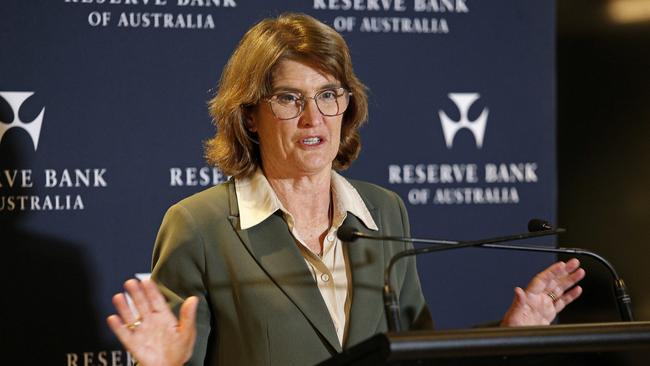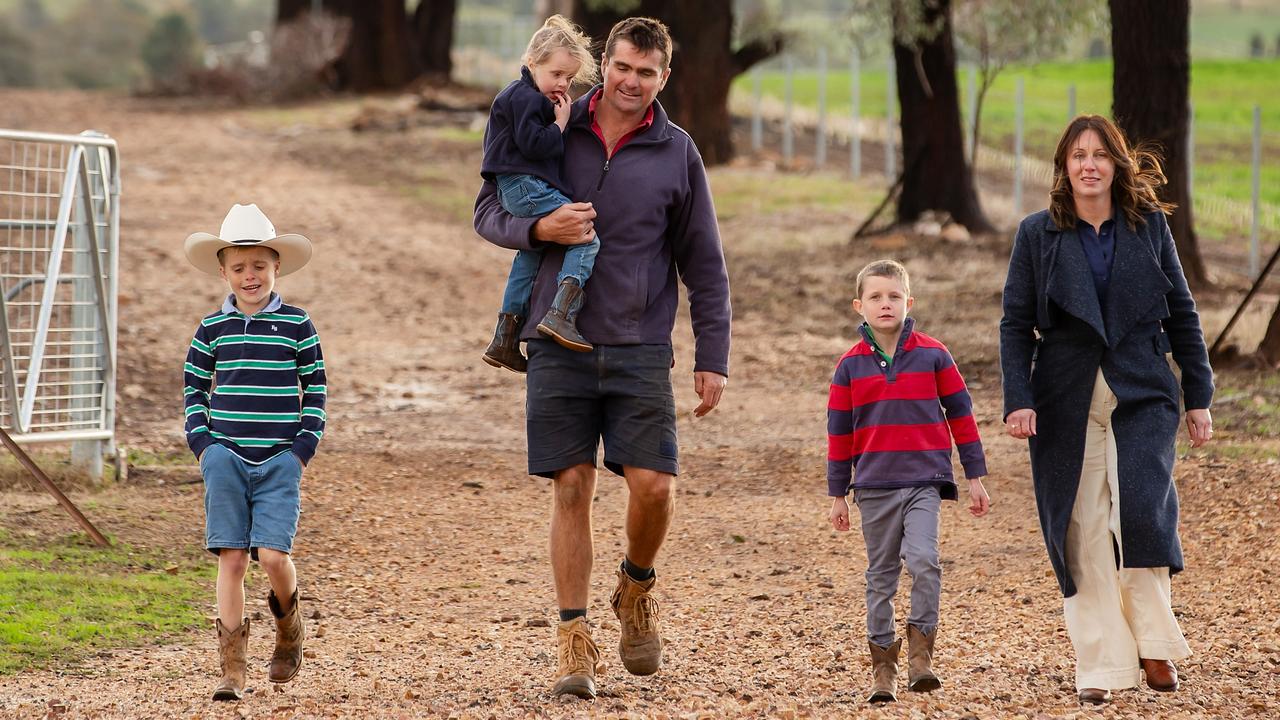RBA’s costly Covid hangover drags on
The RBA’s latest annual report details a $4.2bn on-paper loss for the past financial year, taking its accounting losses since 2021 past $51bn.

The Reserve Bank’s balance sheet has continued to carry the hangover of the Covid-era largesse, with the institution recording another multi-billion-dollar accounting loss.
The RBA’s latest annual report detailed a $4.2bn on-paper loss for the past financial year, taking its accounting losses since 2021 past $51bn.
The dominant factor behind those losses was the RBA’s purchase of some $330bn of government bonds during the pandemic as part of the effort to keep interest rates low.
Those purchases mean most of the RBA’s assets were fixed at the low prevailing rates of 2020 and 2021, but the cost of the bank’s liabilities has risen as interest rates have increased.
In her statement accompanying the annual report, RBA governor Michele Bullock noted the bank had negative equity on its balance sheet of $20.4bn.
“Negative equity does not affect our operations or ability to perform our policy functions, but the Reserve Bank board considers it important that the RBA’s capital be restored over time,” she said.
“The Treasurer has indicated his continued support for rebuilding capital by retaining future profits, noting that a decision about retention of earnings is made each year.”
The governor noted that inflation remained high in 2023-24 and that the bank expected it to take “another year or two” before it was back in the bank’s target of between 2 and 3 per cent.
“There is still a high level of uncertainty about the economic outlook and the board remains concerned about the degree of excess demand in the economy,” she wrote.
“It recognises the challenging task it faces in bringing inflation back to target in a reasonable timeframe while preserving as many of the gains in the labour market as possible. The board is committed to both goals and believes it can achieve them.”
The latest report also showed Ms Bullock’s pay had increased by almost $400,000 after she stepped into the top job. She was paid more than $1.05m for the first three quarters in the role, working out at almost $100,000 a quarter more than she was being paid when serving as the RBA’s deputy governor.
Elsewhere in the report, the RBA noted that the number of counterfeit bank notes detected in circulation was set to increase for the first time since 2020.
The RBA said almost seven in every million notes in circulation was counterfeit. While that rate is up from last year, it remains well below the 20-year average of 13 notes per million and is low by international standards.
“This subdued level of counterfeiting reflects a combination of effective law-enforcement activities and the increasing saturation of the NGB (Next Generation Banknote) series of banknotes, which is proving difficult to counterfeit due to the notes’ enhanced security features,” the RBA said.






To join the conversation, please log in. Don't have an account? Register
Join the conversation, you are commenting as Logout